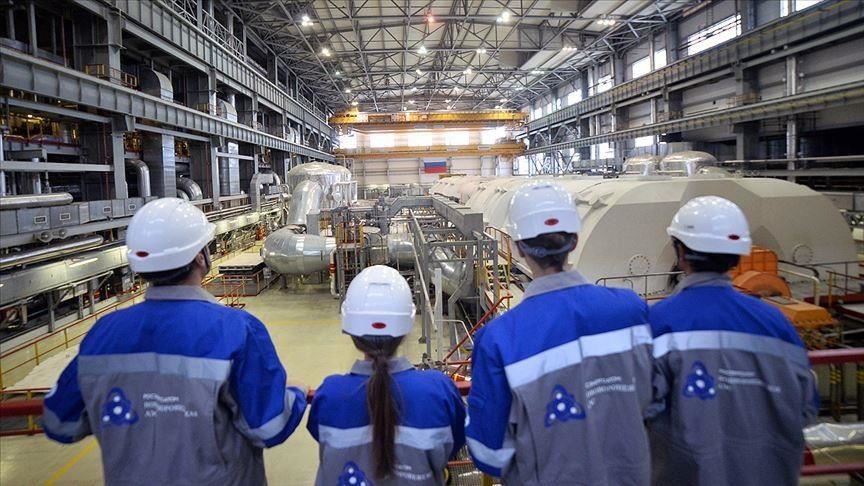India-Russia Nuclear Partnership: Advancing Next-Generation Nuclear Fuel and Reactors

Russia proposes to assist India in building high-capacity nuclear power units, expanding their cooperation in nuclear energy. This offer was made during a meeting between ROSATOM's Director General and India's Atomic Energy Commission Chairman in Seversk, Russia.
Russia has offered to help India build high-capacity nuclear power units at a new site, expanding their cooperation in the peaceful use of nuclear energy. This proposal was made by Alexey Likhachev, the Director General of ROSATOM, during a meeting with Ajit Kumar Mohanty, Chairman of India's Atomic Energy Commission, in Seversk, Russia.
Likhachev stated that Russia is ready to support the serial construction of Russian-designed high-capacity nuclear power units in India. He also mentioned Russia's willingness to collaborate on land-based and floating low-power generation projects and other non-power applications of nuclear technology.
Currently, Russia is involved in constructing the Kudankulam Nuclear Power Plant in Tamil Nadu, India. This project, which began in 2002, includes six light-water nuclear reactors, each with a capacity of 1,000 MW. The first reactor started commercial operations in 2014, followed by the second in 2016. Construction of the third and fourth reactors is ongoing, and agreements have been signed to advance the fifth and sixth reactors.
The meeting between Mohanty and Likhachev took place at the Pilot Demonstration Energy Complex (PDEC) in Seversk, part of the Proryv or "Breakthrough" project. This project aims to develop a new power plant with a closed nuclear fuel cycle, addressing issues related to spent nuclear fuel and radioactive waste.
India's External Affairs Minister S. Jaishankar, during his visit to Russia last December, indicated India's interest in additional sites for Russian reactors. The Kudankulam project is India's largest nuclear power plant and a flagship venture in Russian-Indian technological and power industry cooperation.
ROSATOM has committed to supplying fuel to Kudankulam's reactors throughout their operational life. As of now, construction and equipment installation for Units 3 and 4 are progressing, with parallel development for the project's third stage.
This expansion of nuclear energy cooperation between India and Russia highlights the growing strategic partnership between the two countries in the energy sector. It also underscores the importance of nuclear energy in meeting India's increasing energy demands while addressing environmental concerns related to fossil fuels.
Additional Information from the Internet:
The Kudankulam Nuclear Power Plant (KKNPP) is being built with Russian assistance under an Inter-Governmental Agreement (IGA) signed between India and the former Soviet Union in November 1988, and supplemented by a later agreement in 1998. The plant employs VVER-1000 type reactors, which are a version of the pressurized water reactor (PWR) technology developed by Russia.
The Proryv project aims not only at building a new type of nuclear power plant but also at revolutionizing the way nuclear energy is produced and managed by creating a closed nuclear fuel cycle. This means that spent nuclear fuel can be recycled and reused, significantly reducing radioactive waste and making nuclear energy a more sustainable option.
India is looking to expand its nuclear power capacity as part of its broader strategy to enhance energy security and reduce carbon emissions. By 2032, India aims to increase its nuclear power capacity to 63,000 MW from the current 6,780 MW. The collaboration with Russia and other international partners is crucial in achieving this goal.
The continued development and expansion of nuclear energy projects like Kudankulam are vital for India's energy future, providing a reliable and clean source of power to meet the country's growing energy needs.


